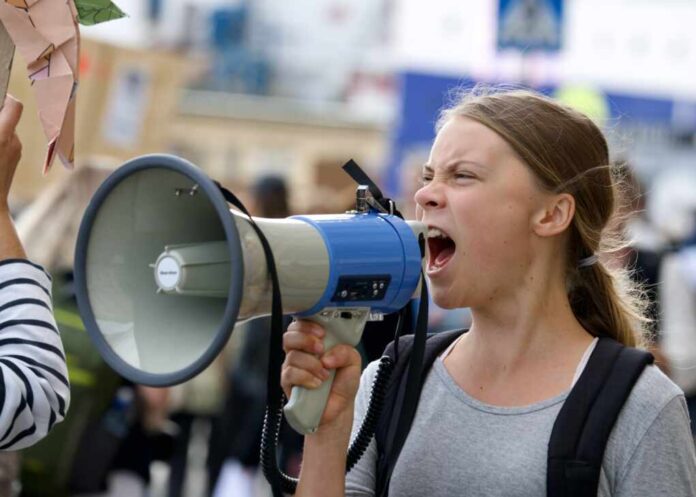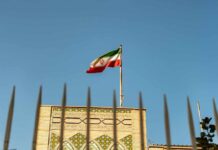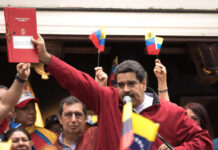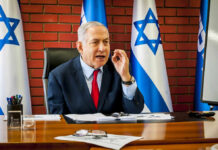
In another bold move, Israeli authorities have intercepted Greta Thunberg’s aid flotilla, stirring controversy over international maritime rights and humanitarian efforts.
Story Highlights
- Israeli forces detained Greta Thunberg and other activists attempting to breach Gaza’s blockade.
- International debate ensues over the legality and humanitarian impact of Israel’s actions.
- The flotilla aimed to deliver aid to Gaza, a region suffering under severe humanitarian conditions.
- Videos of the detention have gone viral, prompting global reactions.
Thunberg’s Flotilla Intercepted by Israeli Forces
On October 2, 2025, Israeli naval forces intercepted a flotilla led by Swedish climate activist Greta Thunberg in international waters. The flotilla, intended to deliver humanitarian aid to Gaza, was halted and its activists detained. This action is the latest in a series of attempts by international groups to break the blockade imposed on Gaza since 2007. The blockade, enforced by Israel and Egypt, has been a point of contention due to its severe impact on Gaza’s civilian population.
According to Israeli authorities, the flotilla posed a security threat, justifying its interception. However, activists argue that their mission was purely humanitarian, aiming to alleviate the dire conditions in Gaza. The detention of high-profile activists like Thunberg has amplified the situation, drawing significant media attention and sparking international debate over the balance between security and humanitarian rights.
BLOCKADE DEFENDED: Greta Thunberg detained after Israeli forces intercept Gaza-bound aid flotilla pic.twitter.com/gNclizenyU
— Fox News (@FoxNews) October 2, 2025
International Reaction and Diplomatic Tensions
Global reactions have been swift and varied. Human rights organizations have condemned the interception, claiming it violates international humanitarian law. European politicians and several NGOs have called for the immediate release of the detained activists, emphasizing the need for dialogue and humanitarian support rather than aggressive enforcement actions. The incident has further strained diplomatic relations between Israel and several European countries, which have repeatedly criticized the blockade.
The viral spread of video footage depicting the detention has intensified scrutiny on Israel’s maritime policies. The images have reignited discussions about the rights of activists and the ethical implications of enforcing such blockades. This event highlights the ongoing challenges in addressing the humanitarian needs of Gaza’s population without compromising regional security.
Watch:
Historical Context and Implications
The Gaza blockade has been a topic of international debate since its inception in 2007, following Hamas’ takeover of the territory. Past attempts to breach the blockade, such as the 2010 Mavi Marmara incident, have resulted in violent confrontations and global condemnation. The recurring nature of these flotilla attempts underscores the persistent humanitarian crisis in Gaza and the international community’s call for a resolution.
While the immediate outcome focuses on the detained activists and the intercepted aid, the long-term implications could influence policy debates regarding the blockade. It remains to be seen whether this incident will lead to tangible changes or further strain international relations. The persistent efforts by activists like Thunberg highlight the ongoing struggle for human rights and the complexities of geopolitical conflicts.
Sources:
Global News (detailed news report)

























